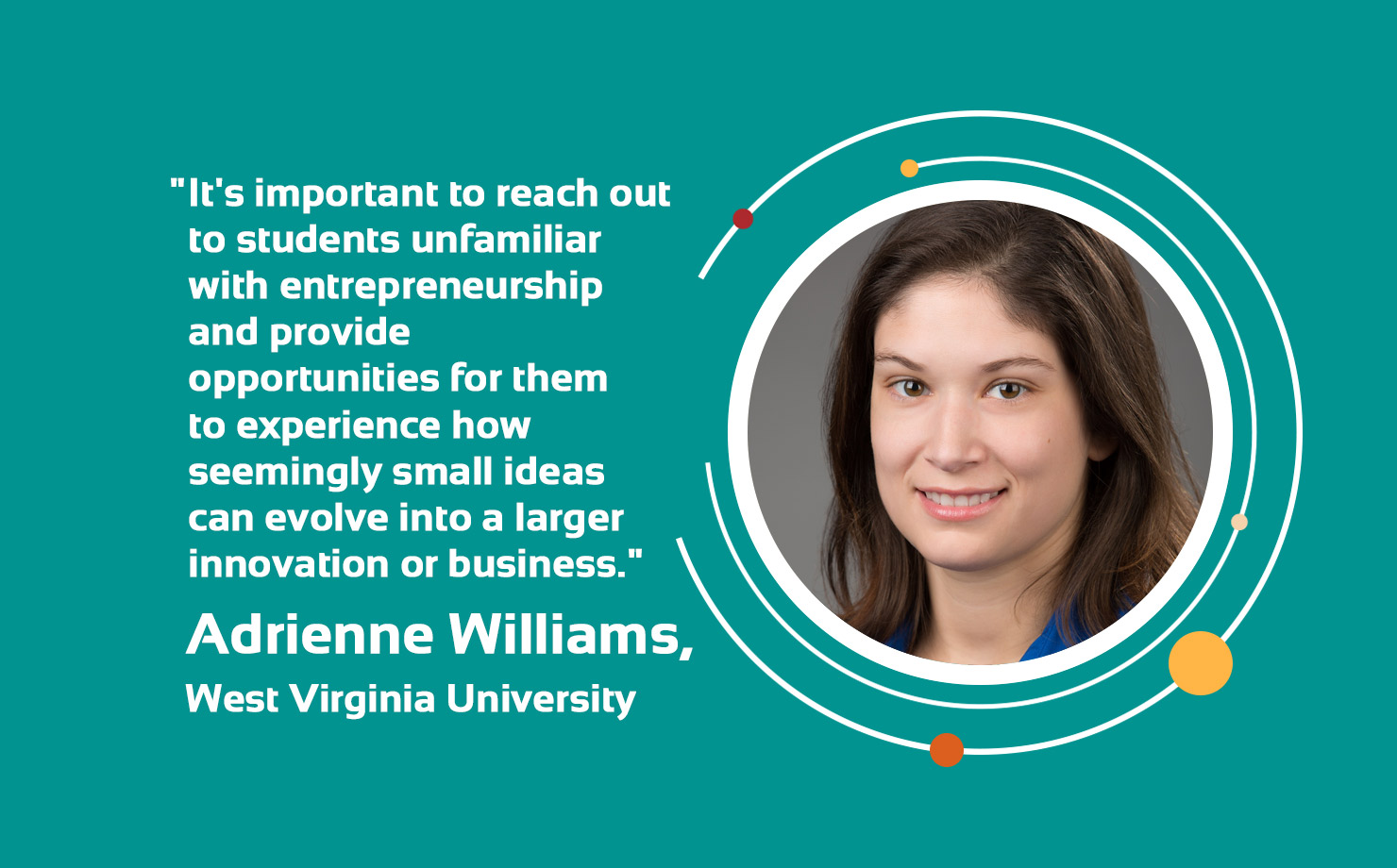
Our Faculty Spotlight series highlights educators within the VentureWell network who are doing good work—faculty members who are catalyzing change in higher education and inspiring students to impact the world through invention. This month’s spotlight is Adrienne Williams, Assistant Professor of Biology at West Virginia University. Williams works to expand access to entrepreneurial mentorship opportunities for science and biology students from under-resourced backgrounds. She received a Faculty Grant in 2019 to develop a program that weaves together collaborative learning, entrepreneurship, and biology.
how did you get interested in teaching entrepreneurship?
I became interested in teaching entrepreneurship when I noticed many similarities in the modes of entrepreneurship education with the fields of science and biology. The practice of the scientific method, for instance, in many ways modeled the core rationale of entrepreneurship. They both provide ways of approaching a “problem” and finding and testing “solutions.” I believe with training you can extend that level of thinking into a student being able to design, launch, or run their own business as planned.
what is your favorite thing about teaching?
I love that teaching innovative thinking can help students become more aware of themselves and their surroundings. I love when a student recognizes an opportunity or understands the importance of an idea that leads them to a breakthrough, and sometimes it is not just about their own ideas, but in getting to know something about themselves.
where would you like to see the field of entrepreneurship in five years?
I would like to see the field of entrepreneurship emphasize the mentorship community. Entrepreneurship in many ways seems a very lofty and unreachable goal for someone who is unfamiliar with it. It’s important to reach out to students unfamiliar with entrepreneurship and provide opportunities for them to experience how seemingly small ideas can evolve into a larger innovation or business.
what are the challenges you’re tackling in your work today?
[The biggest challenge is] making entrepreneurship more accessible and manageable for students not currently enrolled in an entrepreneurship program. For these students, developing a business idea and starting a business is completely unfamiliar ground, but many of these students have the skills and drive to succeed in entrepreneurship. The challenge for me is changing the mindset of these students to help them realize their own potential as an innovation leader.
As for manageability, many students, especially from under-resourced backgrounds, have to balance their lives and school, and adding more is almost impossible for them. We are working to compensate early entrepreneurs upfront for their time learning to be an entrepreneur; this is the starting point for our VentureWell grant. We are also setting up a mentoring network within West Virginia and beyond that allows for open discussions and mentorship opportunities from more experienced innovators.
what books on entrepreneurship and innovation have you been reading lately?
Talking to Humans by Giff Constable. It clearly shows how impactful it is to know who you are targeting for an idea, and how that information can make or break a project. I like how it breaks down real-life examples and includes humor into the scenarios, and illustrates how changing your approach can improve your thought process and help you avoid making little errors.
what’s your most useful classroom activity or assignment?
Games are very useful activities in the classroom. They are fun and everyone gets to contribute something. Most games are team-based, so students have to work together to achieve a goal (action charades, sorting like objects, solving problems). Sometimes their approach works and sometimes it doesn’t. It is important that they learn from their mistakes, but what I find more important in these low-stakes game situations is that it is easier for them to make mistakes and laugh it off rather than feeling inferior.
VentureWell Faculty Grants provide up to $30,000 to help fund and support faculty with innovative ideas to create new or transform existing courses and programs to help students develop novel, STEM-based inventions and gain the necessary entrepreneurial skills needed to bring these ideas to market.